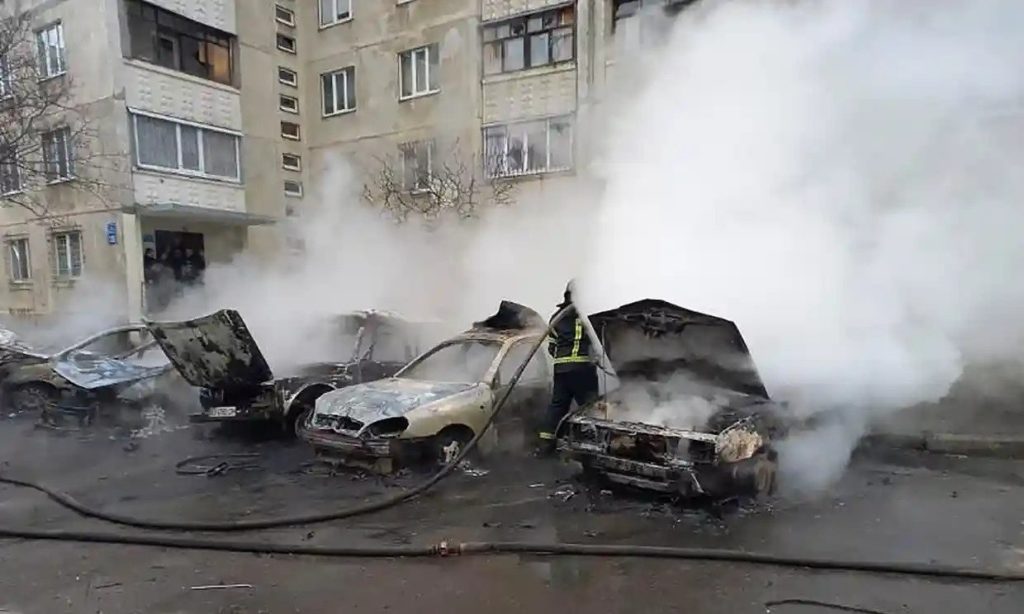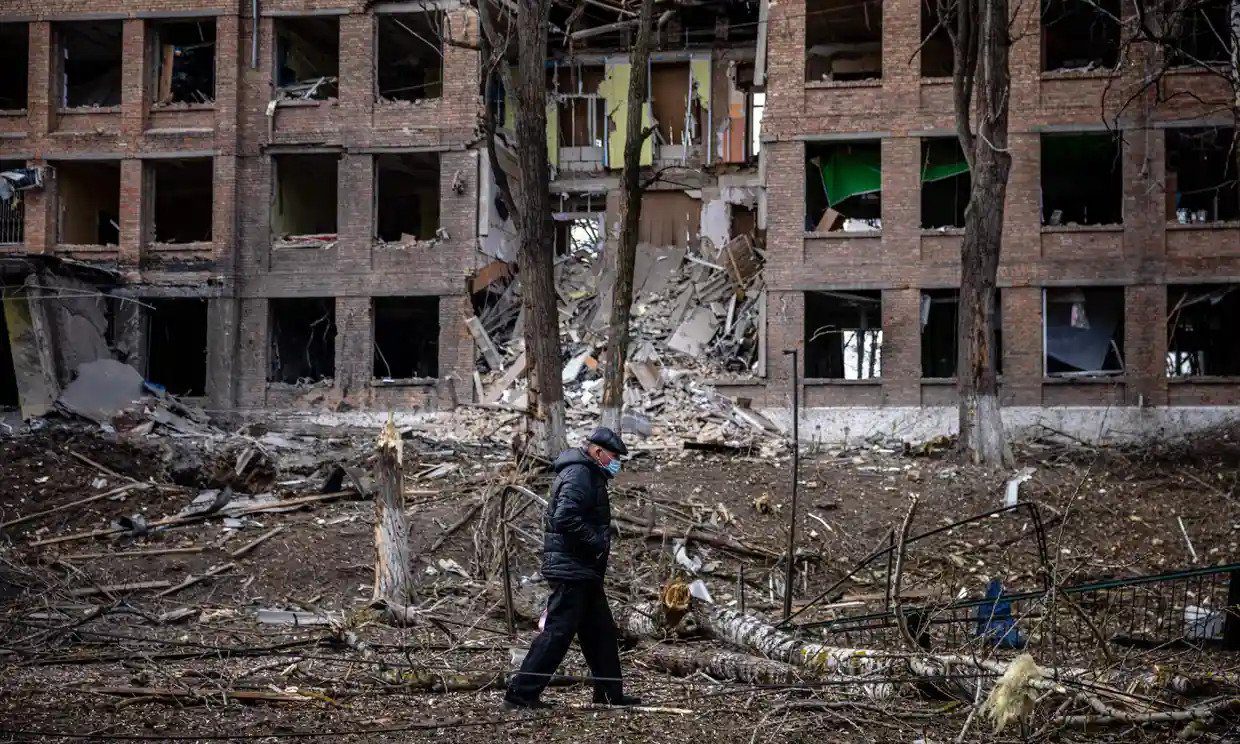Generation Black TV - Live
Social media doomscrolling and Russia’s invasion of Ukraine
How much do netizens actually understand about Russia’s invasion of Ukraine, geopolitics, nuclear weapons and international diplomacy?
The Russian invasion of Ukraine, declared the largest warfare operation in Europe since WW2, prompted widespread reactions by governments, global institutions and, of course, social media.
Live streams with cameras on major cities of Ukraine, such as one in several points of Kyiv, were shared on YouTube, many of them updating their comments section every millisecond. As expected from modern social media, propaganda from both sides and misinformation have been rampant.
On February 24th, when the invasion began, belief in Russia’s victory over Ukraine seemed prevalent, with people online going as far as to comment that Kyiv would fall by Sunday, February 27th. As of writing, Kyiv remains under Ukrainian control.
Ukraine has been trending on Twitter since February 24th, while the r/worldnews subreddit has created more than 75 live threads with news updates, each capped at roughly 10k comments and rising higher as of writing.
Currently, there are nearly a million comments just on the live threads and many netizens have mentioned being glued to their computers for 24-48 hours straight, updating news outlets and relevant Twitter accounts in fear of missing out on an important update from the invasion. Many of these are doomscrollers; people addicted to the absorption of digital negative news to the point the war hasn’t allowed them to work or carry on with their lives.

© Ukraine State Emergency Press
After analyzing the r/worldnews Ukraine vs. Russia live thread, the main takeaways from the thread regarding reactions, thoughts, and concerns of doomscrollers commenting on the war were the following:
- Outspoken armchair generals, who’d make outlandish predictions of the invasion and war effort that wouldn’t have been out of place in a 90’s action film or a Call of Duty game.
- Constant mentions of Aleksandr Dugin’s “The Foundations of Geopolitics: The Geopolitical Future of Russia” (1997) cited by unofficial sources as the foundation for the Russian military’s invasion of Ukraine.
- Memes and propaganda of the yet unidentified “Ghost of Kyiv”, an alleged Ukrainian ace fighter who allegedly took down six Russian soldiers using dated equipment on the first day of the invasion. The ghost of Kyiv practically dominated the web during February 25th. At the start of day two, he was compared with Red Baron and even called the Ukrainian Simo Häyhä.
- Kyiv live stream viewers confusing filtered wind and car sounds with shelling and missile sounds. Viewers seemed flabbergasted that during the first days of the invasion, “people seemed to go about their daily lives.”
- The widespread belief that Russia invading Ukraine would set a precedent for China invading Taiwan, with Taiwan trending on Twitter on Friday 25th.
- Praise to Ukrainian president Zelensky for his speeches, actions and remaining in Kyiv, and constant criticisms of the actions of Vladimir Putin and Russian oligarchs.
- Misunderstandings on how global entities such as the UN and primarily NATO functioned, deriding them for not “doing something,” yet forgoing the intricacies of worldwide diplomacy and ignoring how they can realistically act in the grand scheme of things.
- A particularly unsavory breed of posters seemed eager to see the possible destruction that any nuclear weapon could cause.
- “I had to work, update me on what happened in the last X hours” comments, which were promptly disregarded and told off to “go and read Twitter .”Eventually, r/worldnews posted an alternate thread for significant updates.
- Recurring “remember to take a break from the doomscrolling” comments.
Misinformation, sensationalism and desperate forum mods attempting to keep the overwhelming deluge of armchair generals chiming in with their takes on the war were the bread and butter for social media doomscrollers throughout the week.
The fog of war on the invasion has been worsened by the social media “nuclear WW3” panic that took over Twitter, Reddit, Instagram and TikTok for the last couple of days. And, for many doomscrollers, keeping their brains updated with bad news is what enables them to feel a sense of control over the situation. However, it increases anxiety without truly providing any actual control. More importantly, having an online echo chamber of fearful thoughts on the war has worsened many people’s mental health.
Our mental health needs to be self-aware of doomscrolling and establish boundaries on the updates of the current situation. Limiting your time reading about news of the war will decrease your chances of becoming addicted to doomscrolling. As commenters in the thread will say: take a break, go for a walk, drink some water and continue your day.


